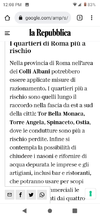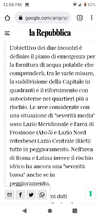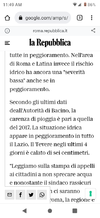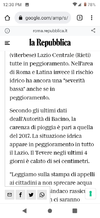Guess not just the wheat might be damage, all food.
You are using an out of date browser. It may not display this or other websites correctly.
You should upgrade or use an alternative browser.
You should upgrade or use an alternative browser.
Potential Food and Energy Shortage Across the World
- Thread starter PabloAngello
- Start date
Do you think anybody cares what Fred Ziffel's ESG score is?
As small farming and ranching operations struggle to bounce back from the COVID-19 pandemic and supply-chain disruptions, the federal government is preparing to throw another hurdle their way.
SEC's New ESG Rule Hurts America's Small Farms & Ranches | ZeroHedge
ZeroHedge - On a long enough timeline, the survival rate for everyone drops to zerowww.zerohedge.com
This interesting article from a couple of days ago:
They're coming for your backyard chickens...
Which quotes the head of virology at the government's Animal and Plant Health Agency (Apha):"Bird flu is on the rise in the UK. Are chickens in the back garden to blame?"
"Uncontrolled" is very much the key word there."The more humans are in contact with birds in an uncontrolled way, the greater is the theoretical risk that people can get infected."
This scare campaign is not new. Three weeks ago an outbreak of salmonella in the US was blamed on people keeping their own chickens. Back in January, when there were barely any bird flu cases to report, The Conversation was already hosting articles claiming...
And calling for a new policy on backyard chickens:Bird flu: domestic chicken keepers could be putting themselves - and others - at risk.
It's pretty easy to see where this is going, isn't it? But why take aim at ordinary people keeping a handful of chickens in their back garden?This is why it will be important in the future for Defra and APHA to provide specific policy for backyard chicken keeping.
Well, partly because they simply want to cut the amount of natural food people eat - most especially meat, but also eggs and other dairy produce. They want people entirely reliant on mega-corporations for their processed cubes of "food".
But they also want people entirely reliant on the state for permission to do...almost everything. And in, some ways, the Covid pandemic narrative was counterproductive in that cause.
One of the unintentional effects of Covid in general and lockdown specifically was re-awakening in people an urge to go their own way. The powers-that-be are keen to reverse that trend.
Nestle CEO Peter Brabeck-Letmat argues that water is not a human right and should be privatized and controlled by the elite
Brabeck-Letmat, now chairman of one of the world's largest corporations and a food manufacturer, believes that corporations should own all the water on the planet, and no one should have access to it if you don't pay.
Brabeck-Letmat, now chairman of one of the world's largest corporations and a food manufacturer, believes that corporations should own all the water on the planet, and no one should have access to it if you don't pay.
Magnolia
Jedi Master
Zerohedge:
EU Imports More LNG Than Russian Pipeline Gas for the First Time Ever
"For the first time ever, the European Union has imported in June more liquefied natural gas (LNG) from the United States than gas via pipeline from Russia, as Moscow slashed supply to Europe earlier this month, Fatih Birol, Executive Director of the International Energy Agency (IEA), said on Thursday."
Biden Admin Halts 2nd Largest US LNG Plant From Restarting Operations After Blast
The Biden administration is preventing the second-largest US liquefied natural gas export facility from repairing or restarting operations in the wake of a fire earlier this month over 'risks to public safety.'
"Continued operation of Freeport's LNG export facility without corrective measures may pose an integrity risk to public safety, property or the environment," PHMSA said in its preliminary report, after a problem with a safety valve led to an 18-inch stainless steel pipe to overpressurize and burst. This released LNG and methane, leading to the blast."
"The actual process (of reviews, repairs and approvals) will take longer than three months, and potentially take six to 12 months...."
________________________
Hmmmm. For both sides of the pond.
EU Imports More LNG Than Russian Pipeline Gas for the First Time Ever
"For the first time ever, the European Union has imported in June more liquefied natural gas (LNG) from the United States than gas via pipeline from Russia, as Moscow slashed supply to Europe earlier this month, Fatih Birol, Executive Director of the International Energy Agency (IEA), said on Thursday."
Biden Admin Halts 2nd Largest US LNG Plant From Restarting Operations After Blast
The Biden administration is preventing the second-largest US liquefied natural gas export facility from repairing or restarting operations in the wake of a fire earlier this month over 'risks to public safety.'
"Continued operation of Freeport's LNG export facility without corrective measures may pose an integrity risk to public safety, property or the environment," PHMSA said in its preliminary report, after a problem with a safety valve led to an 18-inch stainless steel pipe to overpressurize and burst. This released LNG and methane, leading to the blast."
"The actual process (of reviews, repairs and approvals) will take longer than three months, and potentially take six to 12 months...."
________________________
Hmmmm. For both sides of the pond.
Italy has been hit by the worst drought in the last 70 years, affecting the country's most important river, the Po which is critical for irrigation. The higher than average temperatures combined with greatly reduced rainfall as well as the lack of snow during winter has left the river almost dry which is estimated to be down almost 80% compared to the average.
This is hitting the most active agricultural areas of Northern Italy to the point that one of the farmers association has warned the sector could lose up to 3bn euros in revenue and experience a 30-40% drop in harvest this year. Combined with the increase in energy prices and the reduced availability of fertilisers, this does not bode well for food availability this coming fall and winter.
The drought situation is so dire that the region of Lombardy of which Milan is the capital city has declared a state of emergency a few days after Rome's region of Lazio declared a state of natural emergency, restricting the use of public water for domestic and hygienic purposes only while forbidding its use for activities like gardening and car washing. Some municipalities are even considering water rationing in general which will affect both households and agriculture.
This is hitting the most active agricultural areas of Northern Italy to the point that one of the farmers association has warned the sector could lose up to 3bn euros in revenue and experience a 30-40% drop in harvest this year. Combined with the increase in energy prices and the reduced availability of fertilisers, this does not bode well for food availability this coming fall and winter.
The drought situation is so dire that the region of Lombardy of which Milan is the capital city has declared a state of emergency a few days after Rome's region of Lazio declared a state of natural emergency, restricting the use of public water for domestic and hygienic purposes only while forbidding its use for activities like gardening and car washing. Some municipalities are even considering water rationing in general which will affect both households and agriculture.
Italy Suffers Its Worst Drought In 7 Decades; Lombardy Region Declares State Of Emergency
The drought in Italy has dried up rivers that are essential for irrigation, notably the Po, endangering almost 3 billion euros in agriculture.
Unusual heat waves and lack of adequate rainfall have inflicted Italy adversely as the Southern European country has been undergoing its worst kind of drought in recent days. An Italian farm group, Coldiretti stated last week that the drought in Italy has dried up rivers that are vital for irrigation, especially the Po river, thereby endangering almost 3 billion euros (or $3.1 billion) in agriculture. The seasonal harvest is expected to encounter a 30% to 40% loss, Associated Pressreported, citing Copagri, Italy's agricultural producers' association. As the drought amplifies, impacting water supply and agriculture, the chief of the Italian region of Lombardy, Attilio Fontana, has issued a regional state of emergency, Euro Weekly News reported. All inhabitants are asked to use water carefully and only when required, according to the declaration made overnight on June 24.
According to a Euro Weekly News report, Attilio Fontana has signed a decree restricting the usage of drinking water to just essentials and outlaws the use of water for activities like irrigation of soccer and golf courses, washing of cars, parks, and streets.
Water crisis in Italy
Since last week, rains have been scarce in the area, driving even the Po, Italy's longest river, to dry up in certain parts and cause Lake Garda's water levels to gradually decline. According to the Euro Weekly News report, the ongoing drought is the worst the country confronted in more than 70 years.
President Fontana of Lombardy further requested the Italian administration to create a control centre to oversee the present water crisis, which is also impacting many other places, while announcing the state of emergency.
Italy's most populated area is the renowned Lombardy, which is home to the fashion capital Milan and has a population of about 10 million. In addition to the limitations on the usage of public water in Milan, the mayor urged the citizens to do their bit by minimising water consumption at home, as per media reports.
While unexpected heat surges and a lack of rain are responsible for the current crisis, Italy is also known for its inefficient water infrastructure. According to the national statistics agency ISTAT, drinking water is mislaid from the distribution systems by 42% annually, largely because of ageing and poorly maintained pipes.
Furthermore, the Italian government's civil protection agency is compiling data from the several national ministries and the impacted areas in order to recommend a more extensive state of emergency. In order to prevent the prospect of water restriction, several policies urging responsible water usage have already been adopted by hundreds of towns and cities throughout the north.
Meanwhile, on Saturday, Milan's mayor Giuseppe Sala signed an ordinance shutting off the spigots of public ornamental fountains. While visiting churches, Milan's archbishop prayed for rain as the region of Italy experienced one of its worst droughts in decades, Associated Press reported. The decree, according to Milan Mayor, would switch off ornamental fountains except those that contain plants and animals that require fresh water. Additionally, it prohibits the use of sprinklers on anything but young trees.
Comments from Ice Age Farmer
Singapore launches beer made from recycled sewage.
Yes - they are delivering on the promise to “upcycle” excrement into consumer products for you!
That is what the WEF ‘circular economy’ is all about. Delicious!

 ☠
☠
 www.zerohedge.com
www.zerohedge.com
Singapore launches beer made from recycled sewage.
Yes - they are delivering on the promise to “upcycle” excrement into consumer products for you!
That is what the WEF ‘circular economy’ is all about. Delicious!
Singapore Brewery Launches New Beer Made From Recycled Sewage Water | ZeroHedge
ZeroHedge - On a long enough timeline, the survival rate for everyone drops to zero
On a lighter note after reading the article on ZeroHedge, first thing that came to mind was that at least their sewer sludge is relatively clean over there with drugs being banned. Now imagine this in London, UK. The amount of residual drugs, steroids, anti-depressants, contraceptives and hundreds of other substances in it would make anybody attempting to drink it "instantly high with interesting side effects".
Yet, I have no doubt this will be a popular brew and people will be dringing it if for no other reason than curiosity.
Yet, I have no doubt this will be a popular brew and people will be dringing it if for no other reason than curiosity.
Singapore launches beer made from recycled sewage.
From what i understand, this recycling of sewage has been going on in Singapore for the water supply for a while now. The first NEWater plant was completed in 2000. Paraphrased from an article about this of August 2021:
Singapore has very limited resources and has long had to rely principally on water supplies from neighbouring Malaysia.
(In 2021) Singapore was recycling 40% of its waste water into clean drinking water with an advanced system for treating sewage, involving a network of tunnels, high-tech plants, and air ventilators, in a drive for more self-sufficiency. The article explains how this recycling is done, and it says that since 2021, Singapore hosts five NEWater plants supplying up to 40 per cent of the country's current water needs. By 2060, the company is expected to meet up to 55 per cent of Singapore’s future water demand.
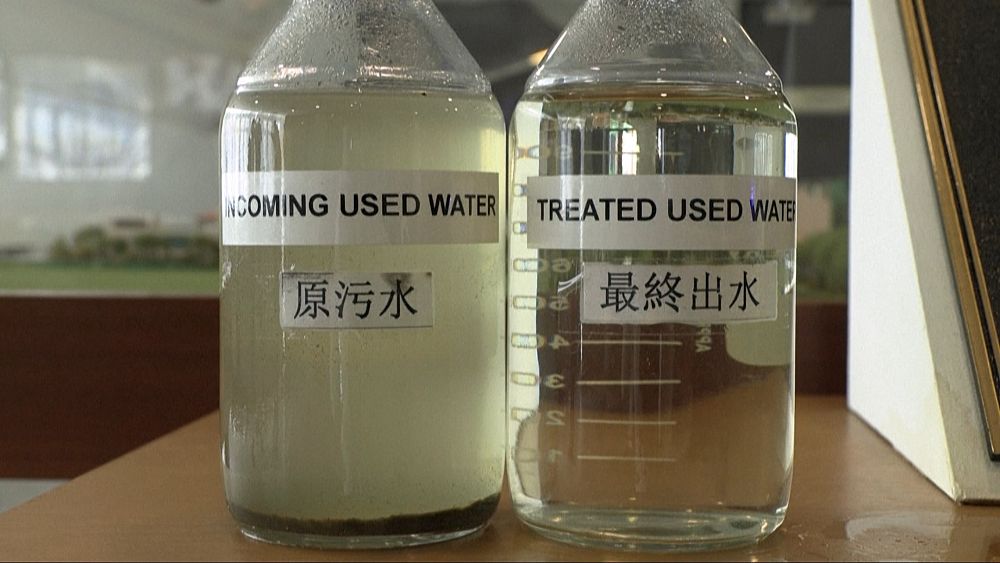
Lack of resources sees Singapore turn sewage into clean drinking water
Forget about the "yuck effect". This could be the solution to water crises in many parts of the world, including Singapore.
G
goggles paisano
Guest
Comments from Ice Age Farmer
next they'll recycle cadavers into bread ... call it Wonder Bread because people will wonder what's in it.

oh wait ...there's already a bread called Wonder Bread !

: )
A
Artemis Luna
Guest
Italy has been hit by the worst drought in the last 70 years, affecting the country's most important river, the Po which is critical for irrigation. The higher than average temperatures combined with greatly reduced rainfall as well as the lack of snow during winter has left the river almost dry which is estimated to be down almost 80% compared to the average.
This is hitting the most active agricultural areas of Northern Italy to the point that one of the farmers association has warned the sector could lose up to 3bn euros in revenue and experience a 30-40% drop in harvest this year. Combined with the increase in energy prices and the reduced availability of fertilisers, this does not bode well for food availability this coming fall and winter.
The drought situation is so dire that the region of Lombardy of which Milan is the capital city has declared a state of emergency a few days after Rome's region of Lazio declared a state of natural emergency, restricting the use of public water for domestic and hygienic purposes only while forbidding its use for activities like gardening and car washing. Some municipalities are even considering water rationing in general which will affect both households and agricultui
Attachments
A
Artemis Luna
Guest
I live in Northern Italy. We have droughts like this quite often,so what you published here is an alarmistic, fake news. Here you can see a screenshot from an Italian mainstream newspaper "La Republica" where is written that we had drought like this in 2017 too. It is also written that authorities have been only thinking about restrictions,not done anything. Anyway, for us, these situations aren't uncommon, so I found your post rather alarmistic.
Attachments
XPan
The Living Force
I live in Northern Italy. This is the situation we have every summer, it's nothing special. This summer drought is not "the worst in last 70 years"; this is a lie. We have droughts every summer (and rains too; we had a lot of rain just 3 days ago), but every summer media publish "the worst drought in last 70 years", if you know what I mean. Everything has been normal so far: a super hot summer (aren't we supposed to go towards ice age, hm...?), we have plenty of food an everything else.
Interesting... because I was a bit puzzled as well; over the headlines that in Italy there is the "worst drought in 70 years", and was wondering how much that is really true ?
For example the reference of that the Po river is very low on water.... does happen now and then. I do remember somewhere between 2013-2019 having seen reports and images of the water levels having been very low in the Po river. (I just haven't found the articles yet, because search engines are now all swamped with the "2022 - worst drought in 70 years headlines")

A
Artemis Luna
Guest
Yes, you are right that Italy has been faced with droughts, and regions in the past have thought about implementing similar measures to limit the consumption of water. The current situation in that respect doesn't seem much different from previous years although the media describes it as being more widespread than previous ones, especially in the north.I live in Northern Italy. We have droughts like this quite often,so what you published here is an alarmistic, fake news. Here you can see a screenshot from an Italian mainstream newspaper "La Republica" where is written that we had drought like this in 2017 too. It is also written that authorities have been only thinking about restrictions,not done anything. Anyway, for us, these situations aren't uncommon, so I found your post rather alarmistic.
From what I have read, what makes this one harsher is the reduction of the water level of the river Po, the lowest measure in 70 years for this time of the year. The Po is critical for irrigating the farmland in what is the heart of the country’s agricultural industry. I added below an excerpt from an article describing the drop in water level (translated with Deepl).
This is a pretty big deal when you consider the already aggravated situation driven by covid and exacerbated by the increase in prices for energy, grains and fertilisers due to the sanctions. While it doesn’t necessarily mean the country will suffer from widespread food shortages, it can lead to much higher prices later in the fall.
Of course, the media will use a piece of information for a specific condition, in this case the worst drought for the river Po in 70 years, and attribute it to the entire situation, i.e. the worst drought in Italy in 70 years, capitalising on the dramatic report from Coldiretti to keep the population alarmed. This also plays into the climate agenda, giving them further justification for investing billions into the green economy rather than using the money to support families and SMEs. FWIW
Drought alarm, record low water in the Po: 'Never like this in the last 70 years'
The complaint comes from Coldiretti, which has pointed out that the water level of Italy's first river has never reached such dramatic levels. Concern also for livestock farms and the availability of fodder
The drought alarm in Italy is not abating. After the first hints that we are once again facing a summer of record heat in the past few days, Coldiretti is now launching a new complaint: never has the water level of the Po River been so low in the last 70 years.
The hydrometric level of Italy's first river at Ponte della Becca, in Pavia, has dropped a good 3.7 metres, a record that has not been recorded for at least 70 years.
Also of concern is the situation of large lakes, such as the Maggiore lake, whose filling level is at 22%, touching its historical minimum. The Como lake basin, on the other hand, is at 25%. The overview presented by Coldiretti is "dramatic", with a 2022 that has seen rainfall almost halved in just six months, with a lack of rain that in some areas has lasted for almost three months and where recourse has been made to water tankers, rationing and restrictive measures for the irrigation of vegetable gardens and orchards.
Trending content
-
Thread 'Coronavirus Pandemic: Apocalypse Now! Or exaggerated scare story?'
- wanderingthomas
Replies: 30K -
-
-

